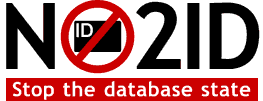So, this weekend, I ran in the Spartan Sprint, the event I and a few friends were training for over the past month or so. The Spartan sprint is a 5KM long obstacle course, which was tiring, but very very fun.
I had my Go Pro strapped to my chest and got some great footage, which I edited together into a little video (which I’m quite please with, especially as it was a first attempt put together in a hurry).
I am aware this post digresses from my usual technology focus, but watch the video and I’ll bring it back to the point in a minute.
Right.
I put this together with Apple iMovie on the Mac Mini I bought so I could do some iOS development. Previous attempts at editing video using FOSS tools had been painful, but iMovie was a total dream to use – simple and intuitive interface, I could add and edit the soundtrack, there was a bunch of handy effects. Obviously, it’s not a professional edit suite, but it was more than enough for me to hack together a little demo video on an evening.
However, I’m pretty pissed off. For two reasons.
Firstly, FOSS… pull your finger out! Video editing on Linux is absolutely horrific… sort it out.
Secondly, Apple have made the wonderfully intuitive and simple application that works really well. So what the hell is the excuse for iTunes?
You have none, Apple.
The UX is ropey and inconsistent, it is bloated and needs to be updated every ten minutes, and my biggest gripe; if you have your music library on a network drive and forget to mount it before starting iTunes, it’ll forget it entirely and then force you to factory reset your phone before it’ll let you do any updates.
I know this is down to the DRM Apple was forced to build to get music industry buy-in on the iPod concept, but it’s 2013 and if DRM went away tomorrow, the music industry would not pull everything out of the iTunes store. So, why are you making my life suck Apple? Why did I have to buy a new MP3 player just so I could update my playlist and avoid having to run iTunes?
You make some great stuff Apple, so why does iTunes suck so hard?

